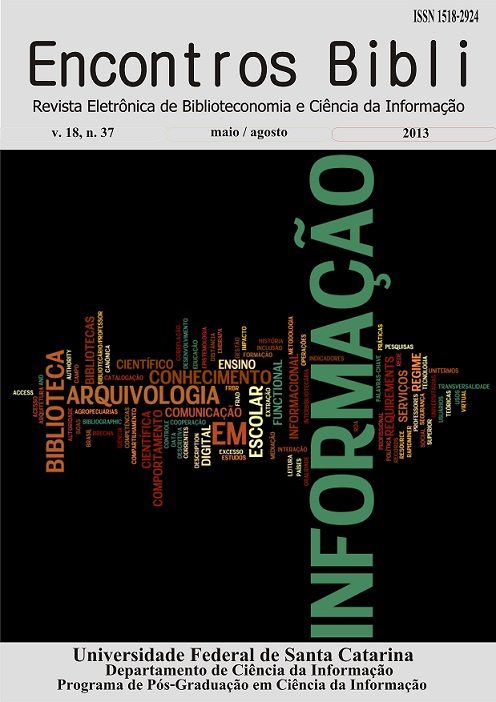Analysis of the profile of students in a course Lato Sensu using RapidMiner tool
DOI:
https://doi.org/10.5007/1518-2924.2013v18n37p19Keywords:
Teacher education, Transversality, Knowledge extraction, Distance education, RapidMinerAbstract
This paper aims to raise the profile of the participants selected a course-level Lato Sensu in EaD mode by the University Federal de Santa Catarina (UFSC). It was used RapidMiner tool for knowledge extract. It was also used to observe and structure the data (using ranking algorithms based on the technique of numerical tree ID3) with respect to training, experience in EaD and research of selected candidates. With this analysis, was proposed a pedagogical approach of the course congruent with of the selected profile, facilitating the development of learning situations and teacher education in the interaction of two major areas: management and teaching. The organization of the course is concerned with preserving the unity of knowledge in the training of participants. In this perspective, the disciplines are integrated by four axes that constitute the curriculum organization. The axes and themes treated as disciplines propose the crossing and the complementarity during to elapse of the course, contemplating the prismatic look of interdisciplinarity and transversality.
Downloads
Downloads
Published
How to Cite
Issue
Section
License
Copyright (c) 2013 Juliana Leonardi, Araci Hack Catapan, Rogério Cid Bastos

This work is licensed under a Creative Commons Attribution 4.0 International License.
The author must guarantee that:
- there is full consensus among all the coauthors in approving the final version of the document and its submission for publication.
- the work is original, and when the work and/or words from other people were used, they were properly acknowledged.
Plagiarism in all of its forms constitutes an unethical publication behavior and is unacceptable. Encontros Bibli has the right to use software or any other method of plagiarism detection.
All manuscripts submitted to Encontros Bibli go through plagiarism and self-plagiarism identification. Plagiarism identified during the evaluation process will result in the filing of the submission. In case plagiarism is identified in a manuscript published in the journal, the Editor-in-Chief will conduct a preliminary investigation and, if necessary, will make a retraction.
This journal, following the recommendations of the Open Source movement, provides full open access to its content. By doing this, the authors keep all of their rights allowing Encontros Bibli to publish and make its articles available to the whole community.
Encontros Bibli content is licensed under a Creative Commons Attribution 4.0 International License.
Any user has the right to:
- Share - copy, download, print or redistribute the material in any medium or format.
- Adapt - remix, transform and build upon the material for any purpose, even commercially.
According to the following terms:
- Attribution - You must give appropriate credit, provide a link to the license, and indicate if changes were made. You may do so in any reasonable manner, but not in any way that suggests the licensor endorses you or your use.
- No additional restrictions - You may not apply legal terms or technological measures that legally restrict others from doing anything that the license permits.



























